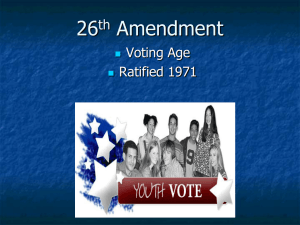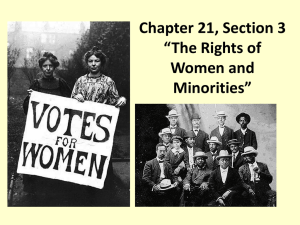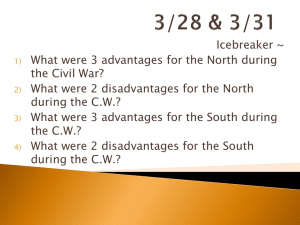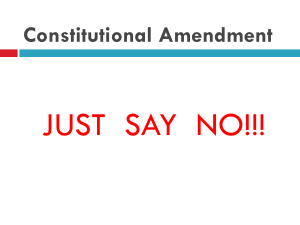suffrage
advertisement
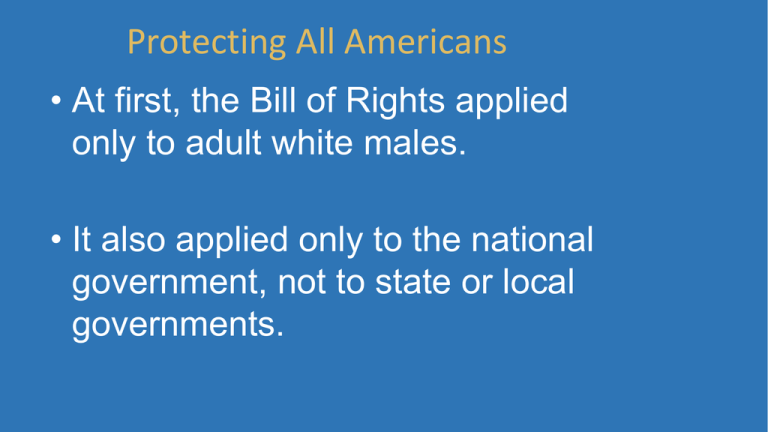
Protecting All Americans • At first, the Bill of Rights applied only to adult white males. • It also applied only to the national government, not to state or local governments. •Later amendments and court rulings made the Bill of Rights apply to all people and all levels of government. •The Civil War amendments–the Thirteenth, Fourteenth, and Fifteenth–extended civil liberties to African Americans. Protecting All Americans (cont.) • The 13th Amendment outlawed slavery, freeing thousands of African Americans. • After the Civil War, many Southern states passed “black codes” that limited the rights of African Americans. •The 14th Amendment remedied this situation by defining citizens as anyone born or naturalized in the United States, which included African Americans. •It required all states to grant citizens equal protection of the laws. Protecting All Americans (cont.) • The 15th Amendment says that no state may take away a person’s voting rights on the basis of race, color, or previous enslavement. • It was intended to guarantee suffrage–the right to vote–to African Americans. • It applied only to men. •According to the Constitution, state legislatures were to choose senators. •The 17th Amendment changed this to allow voters to elect senators directly. Protecting All Americans (cont.) • The Constitution did not grant or deny women the right to vote. • As a result, states made their own decisions. • The Nineteenth Amendment solved this problem by establishing women’s right to vote in all elections. •Because Washington, D.C., is a district, not a state, its citizens could not vote in national elections. •The Twenty-third Amendment established their right vote. Protecting All Americans (cont.) • Several Southern states required people to pay poll taxes to vote. • Because many African Americans and poor whites could not afford to pay, they could not vote. • The Twenty-fourth Amendment outlawed poll taxes. •The Twenty-sixth Amendment guaranteed the right to vote to citizens 18 and older. •Before this amendment, most states set the minimum voting age at 21. Protecting All Americans (cont.) Who benefits from the “equal protection” clause of the Fourteenth Amendment? The equal protection clause benefits not only African Americans for whom it was intended, but in recent years it has also been used to benefit women, people with disabilities, and other groups whose rights have not always been recognized. (pages 109– 112) Checking for Understanding Define Match the terms on the right with their definitions on the left. __ B 1. a sum of money required of voters before they are permitted to cast a ballot A 2. the right to vote __ Click the mouse button or press the A. suffrage B. poll tax Checking for Understanding (cont.) Explain How was the promise of the Civil War amendments fulfilled in the mid-twentieth century? Laws were passed removing restrictions on voting. Click the mouse button or press the Checking for Understanding (cont.) Describe How did the Twenty-fourth Amendment expand voting rights? It outlawed the poll tax, which had kept poor people from voting. Critical Thinking Concluding Which of the voting rights amendments (17, 19, 23, 24, 26) do you think was the most important? Why? Answers will vary. Analyzing Visuals Infer Review the chart on page 110 of your textbook. Which amendment limited presidents to two terms in office? The Twenty-second Amendment limited presidential terms. Click the mouse button to return to the Contents slide.




